What ash trees and bumble bees are telling us
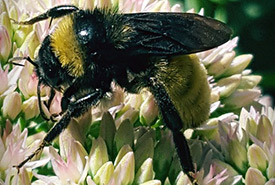
American bumble bee (Photo by K.S. Gardener/iNaturalist)
Black ash and American bumble bee are not species I thought we would ever need to save. When I started my studies in conservation over 25 years ago, bumble bees still seemed commonplace, and I thought of ash as a common tree that was great for...
Nature's medicine
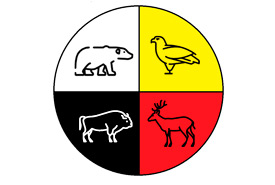
Medicine wheel (Image by NCC. Icons designed by Freepik from Flaticon)
As a Kanien'keha:ka (Mohawk) woman, my connection to my culture and my community is as important to me as the water I drink and the air I breathe. I find my Indigenous roots in nature, where my identity is as deep in the land as the roots in the...
Wetlands in the Frontenac Arch
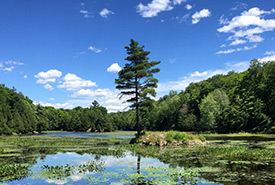
A wetland in the Frontenac Arch, ON (Photo by NCC)
Late last autumn, I was travelling with a friend through the Frontenac Arch. For me, this is a daily occurrence, but I sometimes forget that other people don’t see forests, lakes and wetlands on their morning commutes. It’s always a...
Pikas and their islands in the Rockies
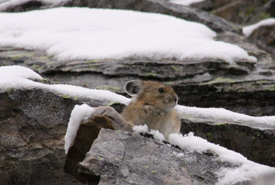
American pika (Photo by Allison Haskell)
What’s your favourite animal? It’s a common question for many of us with a fascination for wildlife and a passion for conserving the natural world around us. When I answer that my favourite species is American pika, some people are...
Where are they now? Intern Alumni Spotlight: Victoria Shore
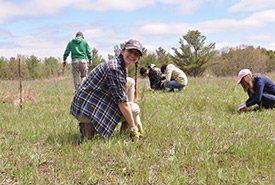
Victoria Shore planting native species while working as an intern at NCC (Photo by NCC)
This blog marks the seventh Intern Alumni Spotlight — a series highlighting some of the individuals who have interned with the Nature Conservancy of Canada (NCC) in the past. Last month, Ryan Dudragne was featured as the Intern Alumni...
Antlers of the East: Tracking the decline of the Atlantic-Gaspésie caribou (part one)
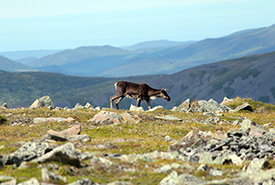
Woodland caribou at the summit of Mont Jacques-Cartier, tallest among the Chic Choc Mountains of Gaspésie National Park, QC. (Photo by Zack Metcalfe)
It was August 18, 2017, when I gained the summit of Mont Jacques-Cartier, an alpine peak of shattered stone and meagre vegetation some 1,270 metres above Quebec’s Gaspé Peninsula. Several stones were organized into mounds, marking the...
A world without wetlands
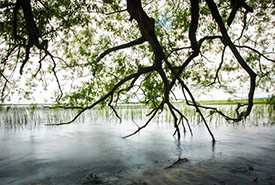
Brighton Wetland, Eastern Lake Ontario Coast (Photo by David Coulson)
I live next to a swamp. After 20 years of having this swamp as my neighbour, it’s kind of grown on me. I enjoy the spring flush of marsh marigolds, the annual reawakening of spring peepers, and I still smile when I see a colourful wood duck...
New guidelines for privately protected areas
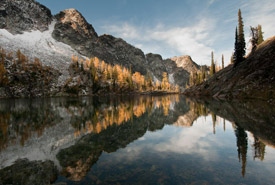
Alpine Lake on Darkwoods, BC (Photo by Bruce Kirkby)
Privately protected areas (PPAs) are protected areas under private governance, as defined by the International Union for Conservation of Nature (IUCN). Private governance includes non-governmental organizations, corporations, for-profit owners,...
Ten good news nature conservation stories from 2018: Our collective actions can have a big impact
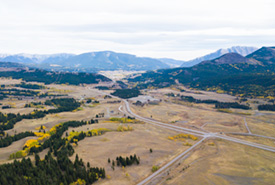
Lands within the Jim Prentice Wildlife Corridor (Photo by Brent Calver)
Around the world, we are at a crossroads in our relationship with the planet. For the first time in human history our environmental impacts are happening at a scale that is affecting all life on Earth. Our collective experience in solving big,...
Puttin’ the boots to junk at Shoe Lake
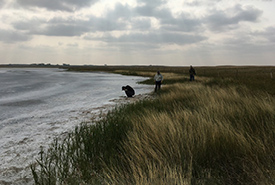
Conservation Volunteers at the Shoe Lake West property (Photo by Bill Armstrong)
Sometimes the best way to show your appreciation for critters and their habitat is to clean up what us humans have left lying around. That about sums up the purpose of a late-August Conservation Volunteers (CV) event at a Nature Conservancy of...

